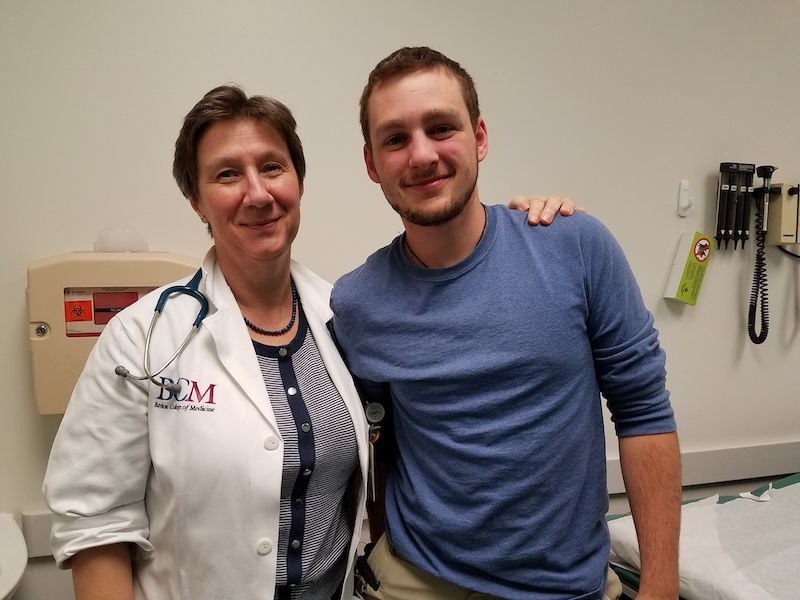
Transitioning through the tumultuous teen years is even more challenging with Type 1 diabetes (T1D). No one knows this better than Tristan Edgar and our family. Tristan was diagnosed with this chronic condition at age 12. T1D is an autoimmune disease in which the pancreas stops producing insulin. Without insulin, the body is unable to manage blood glucose levels.
Creating a good support team is essential for parents managing this condition for their children. The endocrinology clinic at Texas Children’s Hospital provides expert endocrinologists, experienced CDEs (certified diabetes educators) and nursing staff to support the 24/7 care required for T1D management at home.
For children and teenagers living with T1D, their blood sugar levels are impacted by stress, activity and growing hormone levels. Managing a daily health condition can cause burnout and depression. Thankfully, Texas Children’s also offers psychological support for children and teenagers.
Our family has relied on the Texas Children’s T1D team through the years, especially as Tristan transitions into adulthood. For over eight years, Dr. Andrea Balazs has provided support by engaging Tristan and empowering him to accept more responsibility in his diabetes care. She has done this to prepare him for the day he will live on his own, away from family support.
Texas Children’s now offers patients in the endocrinology department an opportunity to remain with their existing endocrinologists past the age of 18. Most facilities transition teenagers to adult care at this age, but Texas Children’s recognizes this first stage of independence can be risky, and sometimes even deadly, without the right support.
We feel the Teen Transition program has been an enormous blessing. Even when Tristan had complications from his diabetes while away at a college camp, he was transported by ambulance back to Texas Children’s main campus. Consistency of care is important when managing diabetes, especially for young adults on their own for the first time.
Now that Tristan is 500 miles from home, he has established a new relationship with an adult endocrinologist in his local college town. As he spends more time away from Houston, he sees Dr. Balazs less frequently, but we so appreciate her support of Tristan with his new doctors. Making sure Tristan has what he needs has always been the focus of the team at Texas Children’s. This includes providing resources and education to empower him with the ability to live with a chronic health condition as an adult.
Through the teen years, Dr. Balazs has engaged Tristan in conversation about his own care during appropriate developmental stages. This also means advising and coaching parents through our changing role too. The transition stage is not all or nothing. It’s a gradual process that takes time. A good relationship with your T1D team is important for teenagers to feel confident in their own self-management ability.
Our family will be forever grateful for the support Dr. Andrea Balazs has provided us through the years. Whether assistance with school 504 Plans, or perhaps a gentle nudge of encouragement, the team at Texas Children’s Hospital has created a strong foundation for Tristan to live with his T1D on his own.
If you're interested in learning more about Texas Children's Diabetes and Endocrine Care Center's Transition Program, click here.

